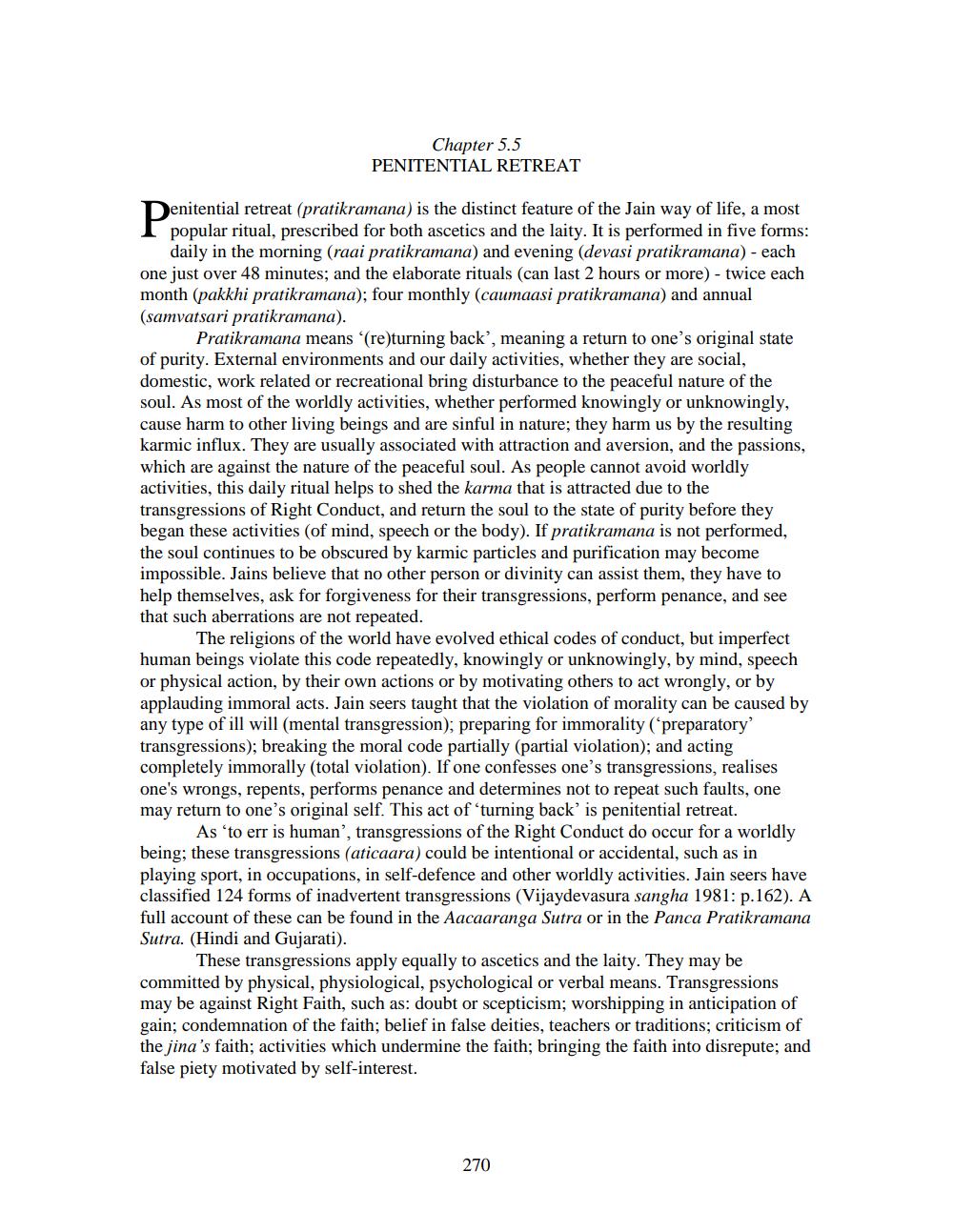________________
Chapter 5.5 PENITENTIAL RETREAT
Denitential retreat (pratikramana) is the distinct feature of the Jain way of life, a most I popular ritual, prescribed for both ascetics and the laity. It is performed in five forms:
daily in the morning (raai pratikramana) and evening (devasi pratikramana) - each one just over 48 minutes, and the elaborate rituals (can last 2 hours or more) - twice each month (pakkhi pratikramana); four monthly (caumaasi pratikramana) and annual (samvatsari pratikramana).
Pratikramana means '(re)turning back', meaning a return to one's original state of purity. External environments and our daily activities, whether they are social, domestic, work related or recreational bring disturbance to the peaceful nature of the soul. As most of the worldly activities, whether performed knowingly or unknowingly, cause harm to other living beings and are sinful in nature; they harm us by the resulting karmic influx. They are usually associated with attraction and aversion, and the passions, which are against the nature of the peaceful soul. As people cannot avoid worldly activities, this daily ritual helps to shed the karma that is attracted due to the transgressions of Right Conduct, and return the soul to the state of purity before they began these activities (of mind, speech or the body). If pratikramana is not performed, the soul continues to be obscured by karmic particles and purification may become impossible. Jains believe that no other person or divinity can assist them, they have to help themselves, ask for forgiveness for their transgressions, perform penance, and see that such aberrations are not repeated.
The religions of the world have evolved ethical codes of conduct, but imperfect human beings violate this code repeatedly, knowingly or unknowingly, by mind, speech or physical action, by their own actions or by motivating others to act wrongly, or by applauding immoral acts. Jain seers taught that the violation of morality can be caused by any type of ill will (mental transgression); preparing for immorality (preparatory' transgressions); breaking the moral code partially (partial violation); and acting completely immorally (total violation). If one confesses one's transgressions, realises one's wrongs, repents, performs penance and determines not to repeat such faults, one may return to one's original self. This act of turning back' is penitential retreat.
As 'to err is human', transgressions of the Right Conduct do occur for a worldly being; these transgressions (aticaara) could be intentional or accidental, such as in playing sport, in occupations, in self-defence and other worldly activities. Jain seers have classified 124 forms of inadvertent transgressions (Vijaydevasura sangha 1981: p.162). A full account of these can be found in the Aacaaranga Sutra or in the Panca Pratikramana Sutra. (Hindi and Gujarati).
These transgressions apply equally to ascetics and the laity. They may be committed by physical, physiological, psychological or verbal means. Transgressions may be against Right Faith, such as: doubt or scepticism; worshipping in anticipation of gain; condemnation of the faith; belief in false deities, teachers or traditions; criticism of the jina's faith; activities which undermine the faith; bringing the faith into disrepute; and false piety motivated by self-interest.
270




